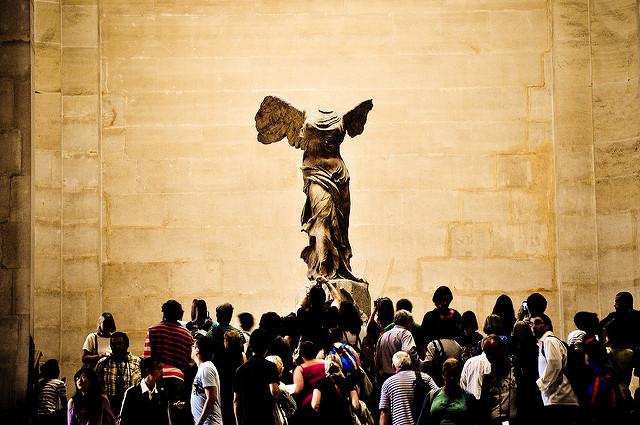The Mosul offensive: military success doesn’t guarantee strategic victory
Posted By Ash Collingburn on October 26, 2016 @ 14:28

As the world watches the Battle for Mosul unfold, the key question isn’t whether the city will be liberated, but rather what comes next? The military operation to liberate Mosul could actually prove to be the least challenging task. The humanitarian and political fallout will be significant, and will have lasting ramifications.
For more than a year, momentum has been with the Iraqi government forces. But the so-called Islamic State (IS) has occupied Mosul for more than two years; therefore, it’s well defended inside the city, and in the words of Clausewitz, defence is the stronger form of war [1]. It’s difficult to predict how long it’ll be before Mosul is liberated, but a conservative estimate would indicate months before all pockets of resistance are cleared.
Mosul was once Iraq’s second largest city [2] and is still populated by well over a million—mostly Sunni—residents, including at least 5,000 IS fighters. Clearing the city will be a complex task, requiring fire support from tanks, artillery and aircraft. Bombs are destructive, particularly in urban terrain; therefore, the city will almost certainly be left in ruins.
Ramadi and Fallujah provide some useful insight [3] into what can be expected in Mosul after the battle. But Mosul is a much larger city and the last true IS bastion remaining in Iraq. It’s also a key part of the caliphate; therefore, IS won’t give up without a fierce fight.
Anti-IS forces will aim to encircle the city from the north, south and east, leaving the west open for IS forces to withdraw. While leaving an open flank seems counterintuitive, it’s much easier to detect, identify, track and destroy the enemy in the open desert than in a built up urban environment where it uses underground tunnels and smoke to obscure movement from the air.
A tactical withdrawal would result in significant loss of prestige for IS, which has previously leveraged off battlefield success through information operations to recruit foreign fighters, inspire attacks against the West and raise international funds to sustain the ‘jihad’.
It’s more likely IS will treat Mosul as its ‘last stand’ in Iraq and prolong the battle. It will preserve critical enablers, including key leaders, but thousands of fighters will remain behind and be prepared die in place.
While anti-IS forces are currently advancing quickly towards Mosul, the hardest fighting is yet to come. Resistance will increase on the rural-urban fringe, then the house-to-house fighting could last months. IS will employ a range of layered and interconnected static and mobile improvised explosive devices to disrupt, and where possible, dislocate advancing government forces. IS fighters will move through the city via a series of interconnected tunnels to reinforce flanks and block advancing formations.
The prognosis: Mosul will become a battle of attrition and the city will be left in ruins.
Within the past week IS launched a major counterattack against Kirkuk to the southeast of Mosul. Such counterattacks will continue for three reasons. First, IS will want to recapture lost ground because territory defines the caliphate. Second, remote attacks shift focus from contested areas to force a redistribution of Iraqi combat power elsewhere. Finally, successful counterattacks will generate news and imagery to feed the IS propaganda machine. Continual losses are bad for the IS brand; it’s desperate for some battlefield success to fuel its narrative and inspire supporters.
While the Mosul offensive unfolds, the United Nations is poised to deliver the world’s biggest and most complex humanitarian effort [4] to assist fleeing civilians, including more than half a million children. The internally displaced people (IDPs) require shelter, food and water—a significant logistic effort anytime, but particularly during a major battle. Most IDPs won’t have the ability to choose where they go; they’re now caught up in the midst of a large battlefield, so their options are to either remain in place, attempt to break through battle lines, or move to UN IDP camps [5].
Some civilians may be reluctant to flee the city because they don’t know what awaits them on the outside. Will they be viewed as IS sympathisers because they’ve lived under its rule for more than two years? Or, will they be seen as victims of the crisis and treated as Iraqi citizens in need of UN assistance and Government support? Although the majority are Sunni Arabs, there is a multi-ethnic dimension that will add further complexity in the aftermath of the military operation.
The Iraqi government’s role in all of this is important. It needs to be seen to serve the interests of all Iraqi people—Sunni, Shia and Kurds. While Prime Minister al-Abadi is pressured from both the US and Iran, he needs to remain stoic and committed to his pledge for an inclusive government that serves the interests of all its citizens, regardless of religion, ethnicity or gender.
If the humanitarian fallout from Mosul isn’t dealt with swiftly and responsibly, or the Iraqi Government doesn’t present an inclusive, viable alternative to IS, there will be no enduring peace. Sectarian conflict will continue, enabling either IS or a successor to resurface and thrive in the resulting violent, chaotic and uncertain environment.
Even when Mosul is liberated, the IS threat will continue to evolve. Australia and its allies need to be prepared and recognise that military success in Mosul doesn’t guarantee strategic victory. That problem requires an Arab-led solution that effectively harnesses and integrates all instruments of international power.
Article printed from The Strategist: https://aspistrategist.ru
URL to article: /mosul-offensive-military-success-doesnt-guarantee-strategic-victory/
URLs in this post:
[1] defence is the stronger form of war: http://www.clausewitz.com/readings/OnWar1873/BK6ch01.html
[2] Mosul was once Iraq’s second largest city: http://www.nytimes.com/2016/08/24/world/middleeast/isis-mosul-iraq.html?_r=0
[3] Ramadi and Fallujah provide some useful insight: https://www.rt.com/news/333398-iraq-destruction-rt-exclusive/
[4] the world’s biggest and most complex humanitarian effort: http://www.abc.net.au/news/2016-10-18/iraq-launches-mosul-offensive-to-drive-out-is-militants/7941164
[5] UN IDP camps: https://un.org.au/tag/mosul/
Click here to print.